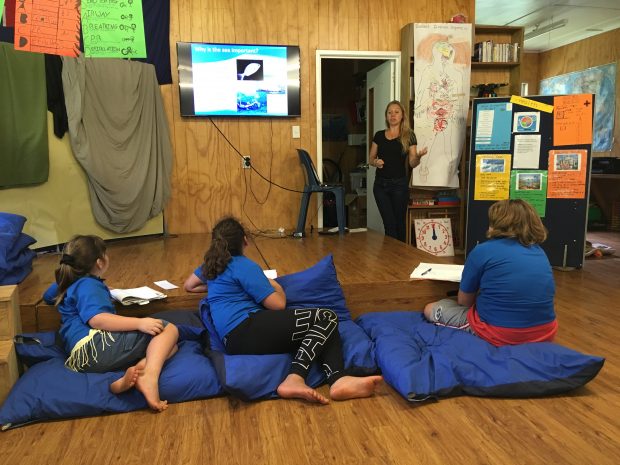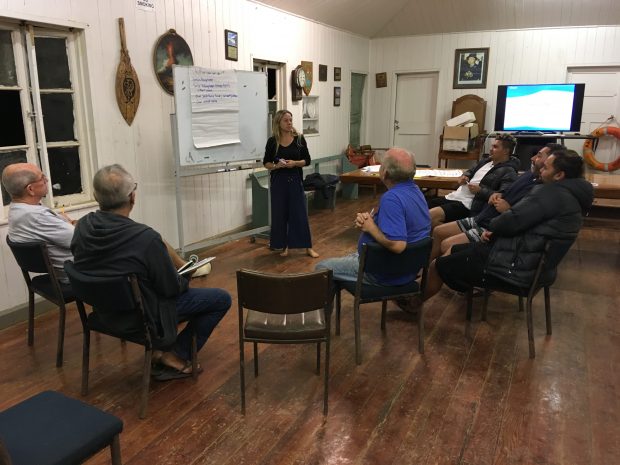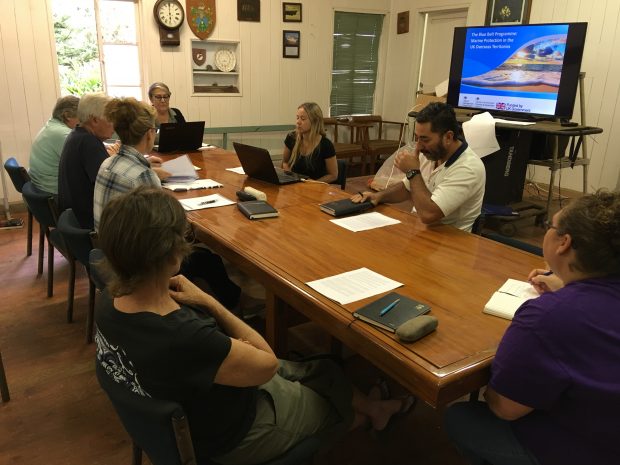Integrated Marine Management Manager, Dr Emily Hardman, provides us with an insight into one of the smallest populated UK Overseas Territories, Pitcairn Island. Emily is working with the local community, helping to deliver the Blue Belt Programme in the waters around the island.

I have just spent an amazing 10 days on Pitcairn Island during which I’ve really enjoyed meeting everyone and hearing the local community’s thoughts and ideas about how the Pitcairn Islands Marine Protected Area (MPA) could be effectively managed.
Integrated Marine Management
I work for the Marine Management Organisation (MMO) in the UK as one of the Senior Integrated Marine Managers on the Blue Belt Programme. The Blue Belt Programme is a four year programme (2016 to 2020), delivered by the Centre for Environment, Fisheries and Aquaculture Science (Cefas) and the MMO on behalf of the UK Foreign and Commonwealth Office (FCO) and the Department for Environment, Food and Rural Affairs (Defra).

The Blue Belt Programme is supporting delivery of the UK Government’s commitment to provide long-term protection of over four million square kilometres of marine environment across the UK Overseas Territories. It is initially focused on five Overseas Territories: British Antarctic Territory, British Indian Ocean Territory, South Georgia and the South Sandwich Islands, St Helena, Ascension Island and Tristan da Cunha and the Pitcairn Islands. The Blue Belt Programme aims to work with these Overseas Territories to: improve scientific understanding of the marine environment; develop and implement evidence-based, tailored marine management strategies including surveillance and enforcement; and ensure management is sustainable and long term.
Working with the local community
I had three main aims: to raise awareness of the Blue Belt Programme on the island; to find out what the local community thinks about the MPA and to hear suggestions about how activities such as anchoring, marine recreation or pollution could be best managed. During my visit, I have given a presentation about the Blue Belt Programme to the Island Council and a talk about why our oceans are important to Pulau School. I also introduced the Blue Belt Programme to the local community and explained why it is important to take an integrated approach and consider the whole ecosystem to ensure that the MPA is effectively managed.

Managing whale-watching, pollution risks, and illegal fishing
I held a consultation with the community about a proposed whale watching code of conduct which will ensure that as the tourism industry develops on the island, this won’t cause disturbance to the humpback whale population. I have gathered information about the island’s capability to respond to a marine pollution incident and provided some training on intelligence recording to help identify any illegal fishing within the MPA and support a prosecution if appropriate. I also held a workshop to find out what the community values about their marine environment, what threats they think there are, how these threats can be minimised and what the community actually wants the MPA to achieve. Once I’m back in the UK, I will use all of the information I’ve gathered to start drafting an MPA Management Plan, which will both protect the pristine marine environment and provide benefits to the local community.
I would like to thank the whole Pitcairn Island community for taking the time to come to my meetings and for giving me all your thoughts and ideas!